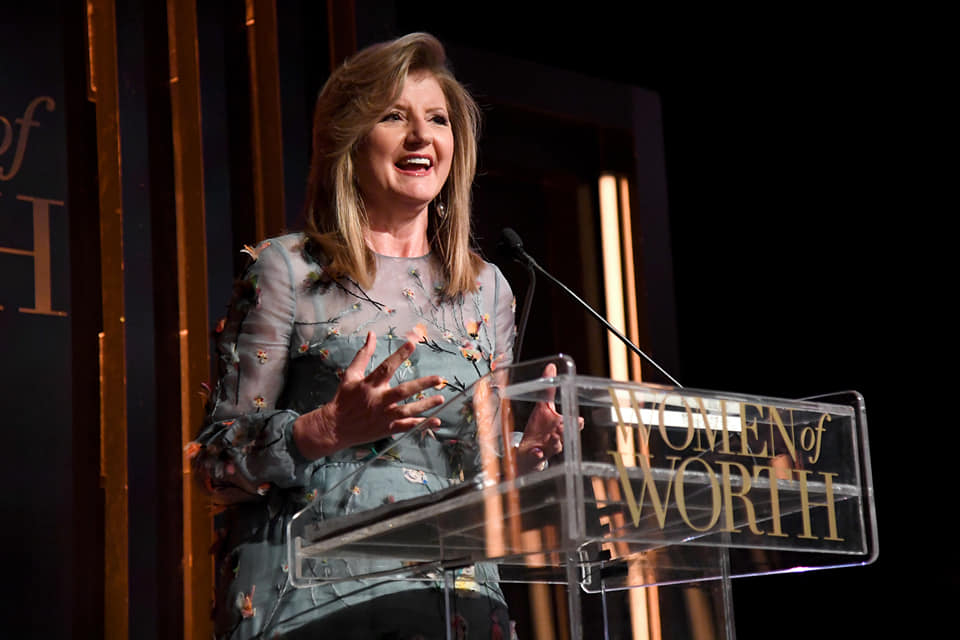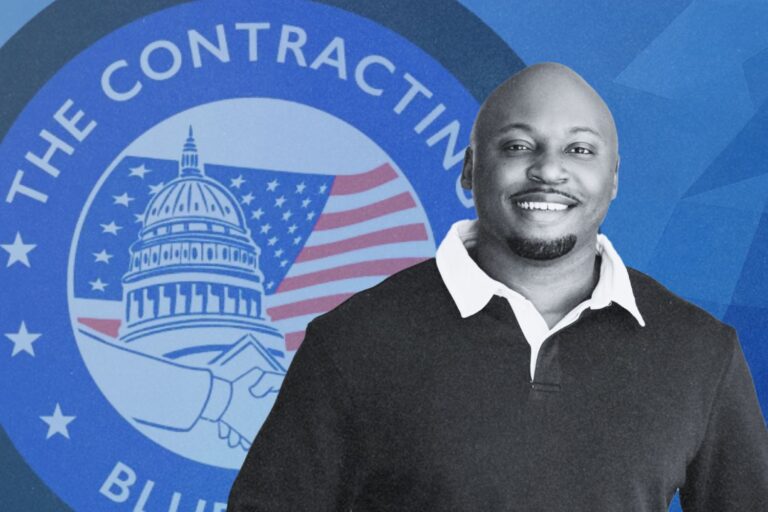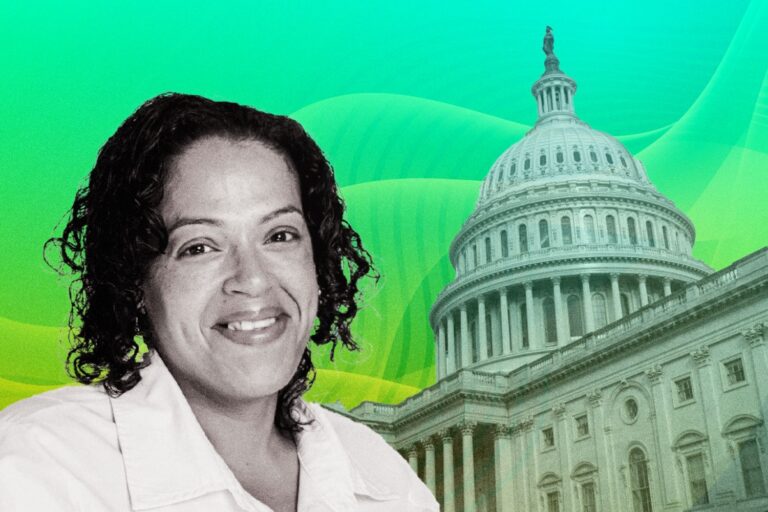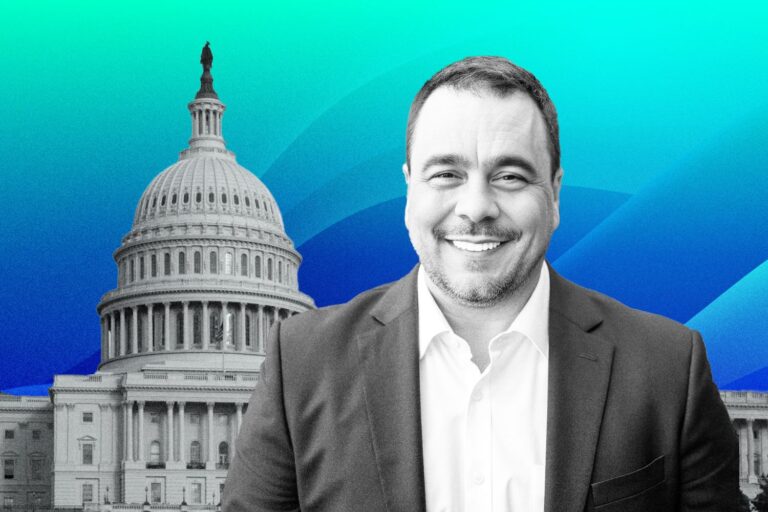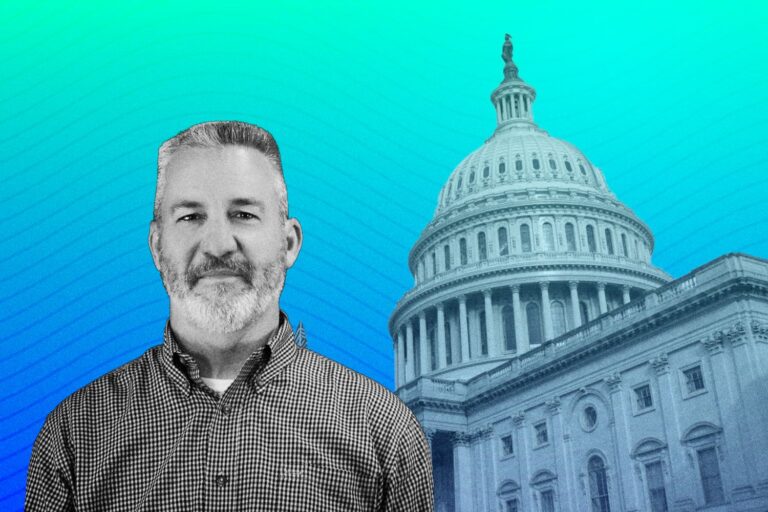Arianna Huffington and Her $700M Venture to Tackle the “Burnout” Epidemic
In 2016, Arianna Huffington left her namesake global media company Huffington Post to find a venture-backed startup that focuses on wellness management. Headquartered in New York City—with offices in Los Angeles, San Francisco, Athens, Mumbai and Melbourne—Thrive Global was named one of The Top 10 New York City Startups to Watch in 2017, and LinkedIn listed it in 2018 as one of “The 50 most sought-after startups in the United States.” Valued at over $700 million in 2021, the company provides behavior change technology and media to individuals and organizations worldwide with the mission of ending the stress and burnout epidemic. It provides companies and employees with the latest science-backed micro-steps that help build habits to reduce stress, improve well-being and maximize productivity.
What’s the reason behind Huffington’s jump from one of the most dominant media companies in the world to fully focus on mental health and well-being? Let’s read on to uncover her story
The “Wake up Call” That Led to a Life-Long Mission on Well-Being
One day in 2007, Arianna Huffington was at home on the phone and checking emails when she passed out, fell, and woke up in a pool of blood, with a broken cheekbone and a cut over her eye, according to this week’s People magazine. Huffington, who had been working 18-hour days building the Huffington Post website, was terrified. After weeks of medical tests, doctors finally came back with a simple, if disturbing, answer: She was exhausted.
Huffington got the first warning about her well-being.
At least 78 percent of American adults say their stress level increased or stayed the same over the past five years, with 33 percent saying their stress levels are affecting their mental health, according to a recent report from the American Psychological Association. Almost half of adults say stress has caused bouts of insomnia within the past month, the APA report found.
Thrive Global isn’t Huffington’s first foray into health and well-being. After her “wake-up-call” experience, she has constantly directed her attention to sleep as the antidote to modern burnout.
In 2015, she published a book on the subject, “Thrive”, in which she proposed redefining our society’s current notion of success beyond money and power. “For far too long, we have equated success with working around the clock, driving yourself into the ground, sleep deprivation and burnout” says Huffington. She followed that up with New York Times bestseller ‘The Sleep Revolution’ in 2015, examining both the science of sleep and our “cultural dismissal of sleep as time wasted.”
“Our relentless pursuit of the two traditional metrics of success – money and power – has led to an epidemic of burnout and stress-related illnesses, and an erosion in the quality of our relationships, family life, and, ironically, our careers,” she wrote on her own site.

Huffington has dedicated her professional career to burnout prevention. According to her, Thrive Global was born, “in response to the need to take control of our lives, offering new strategies and tools, based on the latest science, to address the unintended consequences of technology,” and to end the global epidemic of stress and burnout. In October of 2019, Thrive Global acquired Boundless Mind, a neuroscience-based artificial intelligence company to advance its core mission to help employees and corporations unlock human potential and shape technology for health, well-being and productivity behavior change.
How Thrive Thrives with Its Corporate Business
Less than six weeks after its official launch, Thrive Global — which comprises corporate training, a consumer media platform, and a commerce business, selling items like pillows, candles, Fitbits, and a $100 smartphone bed — has already surpassed revenue expectations. Most of that revenue has been driven by the corporate training partnerships Thrive Global has signed — some of them in the multimillion-dollar range — with companies including Uber, Under Armour, Accenture, and JPMorgan.
Each partnership is different and tailored to each company, using its internal brand language. Huffington said the reason most corporate training programs don’t work is that they are too “cookie cutter” and don’t incorporate the individual company’s values. Thrive begins by conducting a survey to identify employees’ biggest stress points and builds the program from there.
Some partnerships are multiyear, including in-person workshop sessions from Thrive’s trainers, influencers, athletes, and business leaders. So far, guest teachers have included Wharton professor Adam Grant, and Warby Parker CEO Dave Gilboa. The online program also includes examples from Amazon CEO Jeff Bezos, billionaire businessman Mark Cuban, LinkedIn CEO Jeff Weiner, and Starbucks CEO Howard Schultz.
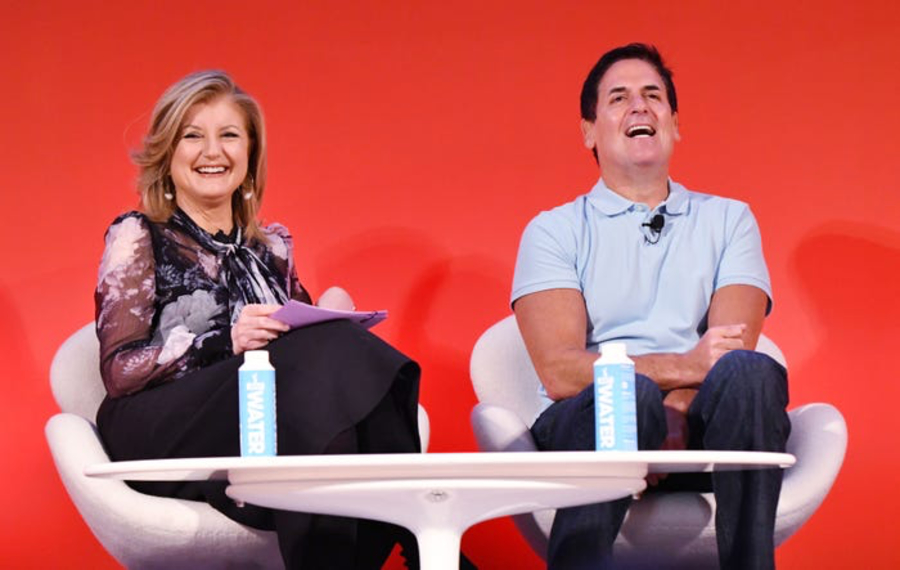
By the end of July this year, the company has secured an $80 million series C round co-led by Mamoon Hamid at Kleiner Perkins. Hamid, one of the earliest investors in Slack, Figma, Box, Yammer, Intercom and Coda, will join Thrive’s Board of Directors to help propel the company forward.
“When I founded Thrive Global four-and-a-half years ago, the problems of burnout and the mental health crisis were still gaining mainstream recognition,” said Arianna Huffington, Founder and CEO of Thrive Global. “But the pandemic highlighted the themes at the heart of Thrive’s mission like never before, bringing employee well-being, mental health and resilience to the top of companies’ agendas. And now as we’re facing a once-in-a-generation opportunity to redefine work and productivity, this is where our mission and our platform meet the moment. This new funding is a validation of all we’ve accomplished so far — but more important, it enables us to fulfill our vision of shaping the future of the employee experience.”
Since its 2016 launch, Thrive Global has helped employees at more than 100 organizations in over 40 countries adopt Microsteps — small, science-backed steps to help build healthy habits. And with the launch last year of its AI-powered behavior change platform, it has been able to scale its impact dramatically, delivering its methodology — focused on Microsteps, storytelling, real-time stress interventions and community — through best-in-class software to everyone from frontline and call center workers to executives of multinational companies.
To date, Thrive users have taken more than 1.5 million Microsteps across the six Journeys in the Thrive app: Recharge, Food, Move, Money, Focus and Connect. Thriving Mind — a mental health and resilience program developed in partnership with Stanford Medicine — has been rolled out to many Thrive customers, including Accenture’s global workforce of over 500,000 employees.
Across Thrive’s customer base, the company is deploying its continuous, real-time behavior change ecosystem. At the core is the Thrive app, which helps users discover and track Microsteps and acts as a behavior change coach in their pocket. It’s reinforced by Leadership Journeys and webinars that spark and sustain culture change, and internal and external marketing campaigns that amplify the voices of company leaders and employees.
The close of this funding gives Thrive the resources to accelerate its growth and impact. Thrive will expand its product, engineering and design teams and invest in its data science, AI and machine learning capabilities to build an even more intelligent Microstep engine. Thrive will add more resources to the development of its cutting-edge Mental Resilience Dashboard, which gives management an at-a-glance view of their employees’ Burnout Risk and Resilience scores as well as targeted recommendations based on both objective and subjective data.
Boost Employee’s Wellbeing through Science and Media
Whether writing books on health and well-being or building Thrive, Huffington is determined to use science and data to prove her point.
To that end, Thrive has created a scientific advisory board made up of doctors and professors from universities such as Harvard, Stanford, and Oxford to advise on its training programs and editorial. Alongside that, Dr. David Augus, the professor of medicine and engineering at the University of Southern California who cofounded the genomics company Navigenics, sits on Thrive’s board and helped curate many of the products for its store.
Thrive has also enlisted Dr. Adam Grant from the Wharton School of the University of Pennsylvania to measure the impact of its training programs on companies’ retention, productivity, and healthcare costs.
Huffington said: “If you look at most health programs, they are interventions after the problem has appeared — weight management, smoking cessation, dealing with heart disease, diabetes. Our interventions are more upstream: What are the stress triggers that lead to this problem? Seventy-five percent of healthcare costs and problems are because of preventable, stress-related diseases. That’s huge if you look at the fact that most companies we work with have growing healthcare costs. That’s why it’s important for us to measure the impact we are having.”
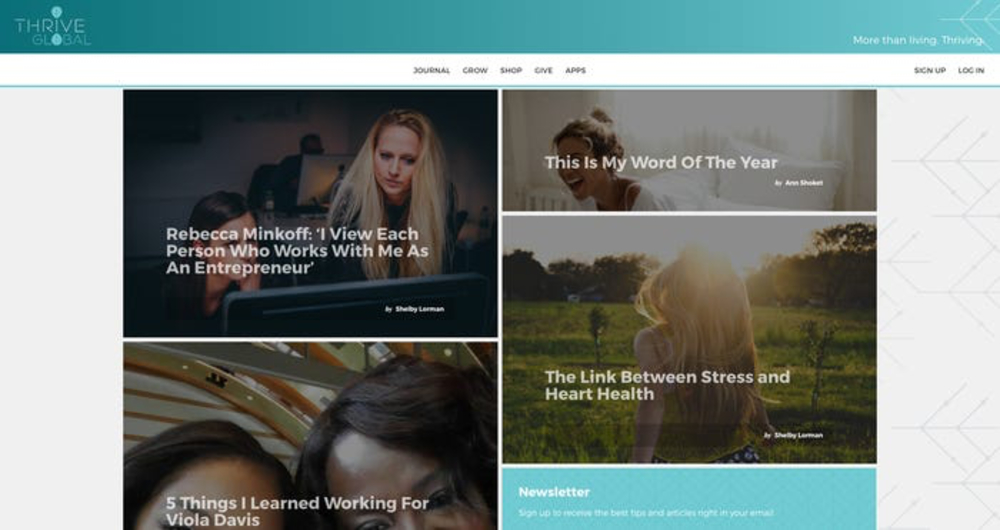
However, as a media mogul, Huffington understands the importance of media in affecting people’s lives. Although Thrive’s revenue today skews heavily toward its corporate business, Huffington is hoping the media side of the business will grow to be a significant revenue-driver too.
The media platform offers articles about improving physical performance, mindfulness, and well-being. It has featured articles from business leaders and influencers such as Selena Gomez and Facebook’s Sheryl Sandberg.
The Thrive Global website launched with a yearlong advertising deal with Quaker Oats, featuring branded content about the importance of reducing stress in the morning. Quaker Oats has also been running events in partnership with Thrive, including a breakfast at a Thrive pop-up store in New York.
Huffington said: “We expect Thrive Global to become the answer for brands that want to tell their own stories around well-being and performance — in multiple languages, in multiple countries — while providing a platform for the people they touch to also tell their own stories.”
Learn to Thrive like Arianna Huffington
Author of 15 books, a syndicated columnist, occasional actress and a businesswoman, Huffington has her own definition of success and secrets to thrive in both work and personal life.
Great Creativity Doesn’t Come From Burnout
According to Arianna, right now success is defined in terms of two metrics: money and power. But it is like a two-legged stool, at some point you’ll fall off of it.
Leaders need to consider unusual metrics such as well-being, inner wisdom, our capacity to wonder and celebrate life, and give back. However, the way companies are currently run, there is no space for these metrics. To tap into our own creativity, we need to slow down. Without creativity there is no innovation.
Arianna Huffington speaks to the importance of a collective move by an organization to foster a relaxed atmosphere for success. A culture of burnout is never going to be a culture of creativity, and this starts at the top.
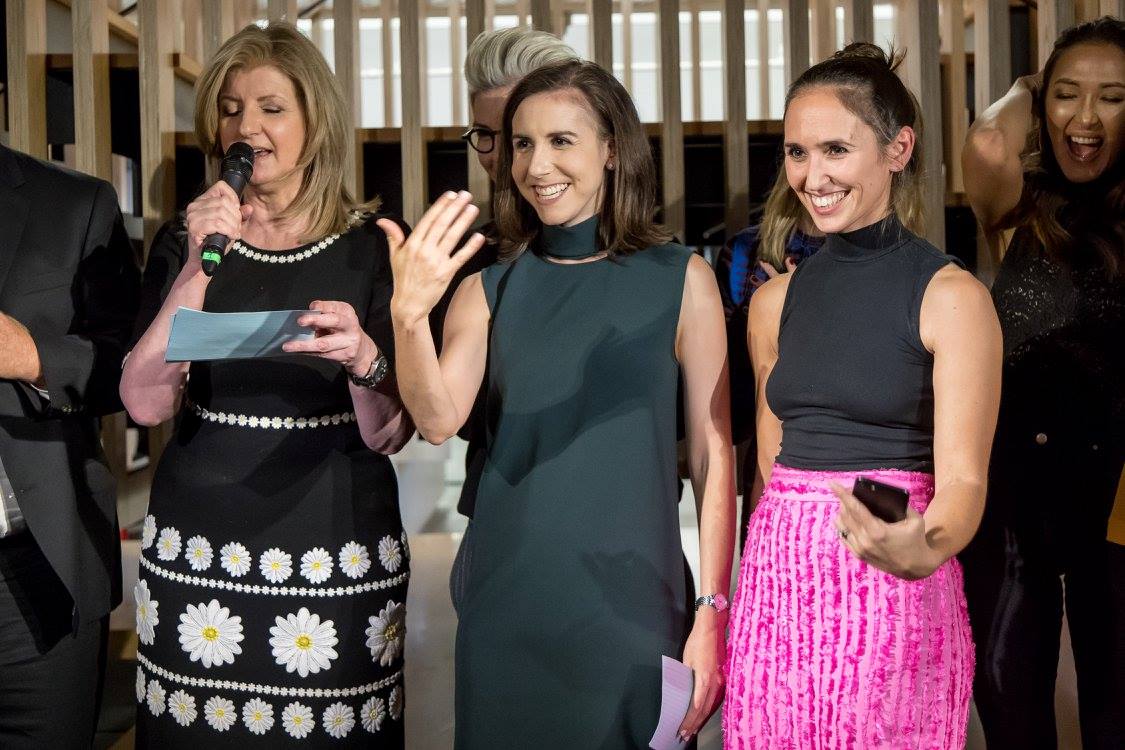
All the Huffington Post offices have nap rooms. When Huffington suggested the idea in the beginning, not a lot of people thought it would work. They told her the idea was ridiculous and her employees wouldn’t ever use the rooms. However, a few months later, the idea took off and now, the nap rooms are booked way in advance! According to Huffington, people cannot function during times of constant crisis and in order to be successfully happy, sleep is extremely important! One of the rules at Huffington Post is, no one is expected to answer emails or calls after work hours and during the weekend. Arianna Huffington believes that the best ideas come when you are relaxed, not when you are stressed. Forcing yourself to work when you’re burnt out won’t produce good results.
Speak Your Mind
When Arianna wrote her first book The Female Woman in 1974, she criticized the entire organic growth of women’s liberation movements and how they would eventually destroy society.
It is important to stand by what you deeply believe in.
Without mincing words, she predicted their detrimental impact on feminist movements. As a result, she was widely criticized for speaking from a privileged position, but it didn’t jeopardize her opinions and she stood her ground. For Arianna Huffington, her truest motivation comes from doing what she loves, and she feels blessed and grateful for this.
She launched The Huffington Post in 2005 when she realized that her passion for conversation and connection converges with what is happening in the world. She saw the importance of moving the conversations and spirit of the times online.
When Arianna moved to London at the age of 16, her entire life was a clean slate. She was an outsider and had almost no academic background in creative writing. However, she wasn’t cowed down by the new world she was thrust into, rather using the exposure at her disposal to improve. We need to find ways to renew ourselves if we are going to be creative leaders.
“Your voice punctuates your leadership style and directly affects your team’s faith in you.” – she said. Your voice is a powerful leadership tool that influences people’s perception, drives communication and helps you articulate your vision. It’s a reflection of your core values and communication skills that impact how you present yourself as a leader.
Failure Is the Stepping Stone to Success
Huffington believes that the only failure you can make is when you stop trying.“It was injected into me by my mother that failure was not something one could fear, it was not the opposite of success. It was just a bridge that would take you to success. And I didn’t have to fear failure. Perseverance is everything. I’m not giving up. Everyone faces failures, but people who keep going on are successful”. – she said.

The path of her career was full of ups and downs. Despite the success of her first book, she had to face 36 rejections for her second book. Rather than sitting back and getting upset, Huffington decided to gain confidence and wisdom with each failure to take up even greater obstacles that she could tackle. The rejections only strengthened her determination in future pursuits. She stood up and together with her business partner Ken Lerer, launched The Huffington Post. Today, as HuffPost is continuing to dominate Internet media, sustainability has been achieved and traffic is currently five times higher than its new media opponents
“Failure is not the opposite of success, it’s a stepping stone to success. If you are not willing to fail and to learn and adapt along the way, you are not willing to be great!” – Huffington shared.
The Bottom Line
With its science-backed approach to behavioral change, emphasis on mental health and resilience, and ability to create communities of support through social media, Thrive Global has been ahead of the curve in so many ways. The company will double down on hiring for its go-to-market teams and building a business development team that brings Thrive to partners to integrate its behavior change solutions into their offerings to consumers, self-insured employers and call center operators.

